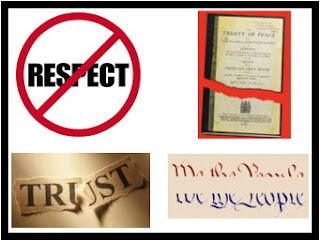The last episode of
the great television drama The West Wing centers
around the inauguration of Matthew Santos (Jimmy Smits) as successor to the show’s two-term president, Jeb Bartlett
(Martin Sheen). While riding to the capitol,
Bartlett asked Santos about his speech. Santos replied that it included a few
good lines, but nothing like John F. Kennedy’s ‘Ask not what your county can do for you, but what you can
do for your country.’ Bartlett sneered, “Yeah, JFK really screwed us with that
one, didn’t he?”
A Different Inaugural
Few inaugurals in American history
present the combination of challenges this one does. Perhaps this resembles 1933 as Franklin Roosevelt faced the
great depression. Maybe
1864 compares when the nation
remained deadlocked in the Civil War. Knowing Biden could do as well as Abraham Lincoln that day would
put everyone’s mind at ease.
With the January 6 invasion and occupation of
the U.S. Capitol by a mob inspired by outgoing President Donald Trump, our political situation arguably rivals
what Lincoln faced. These marauders, having built gallows outside, marched
through the building waving Confederate
flags and shouting “Hang (Vice President) Pence.” The House of Representatives has since impeached Trump for his role in the insurrection and
the U.S. Senate will soon hold a trial. Add the pandemic that has killed 400,000 Americans and still rages and throw
in the historic nature of the new vice president’s ascent and we have a truly
unprecedented situation.
gallows outside, marched
through the building waving Confederate
flags and shouting “Hang (Vice President) Pence.” The House of Representatives has since impeached Trump for his role in the insurrection and
the U.S. Senate will soon hold a trial. Add the pandemic that has killed 400,000 Americans and still rages and throw
in the historic nature of the new vice president’s ascent and we have a truly
unprecedented situation.
democracy. Trump’s decision that he won’t attend diminishes that to an extent, but even the symbolic power of an appearance by the outgoing president pales in comparison with the need for putting the destructive Trump presidency in the rear-view mirror. Biden now doesn’t want him at the inaugural and neither do many Americans.
The Harris Factor
Biden says she will play the same
kind of role in this administration he played in the Obama-Biden years. He promises he will consult
her on every major decision and make her the “last person in the room” in those
situations.
The Speech and the Job Ahead
 in Georgia runoffs that made the upper chamber a 50-50 party split. The incoming administration has plenty
on its plate. Biden and Harris emphasize how much they will focus on the
pandemic. As one observer put it, the coronavirus remains the “boss” of
everything and everybody. Until the country gets it under control the things
ordinary Americans most want can’t happen -- an economic revival and a return
to normal life unfettered by social distancing,
in Georgia runoffs that made the upper chamber a 50-50 party split. The incoming administration has plenty
on its plate. Biden and Harris emphasize how much they will focus on the
pandemic. As one observer put it, the coronavirus remains the “boss” of
everything and everybody. Until the country gets it under control the things
ordinary Americans most want can’t happen -- an economic revival and a return
to normal life unfettered by social distancing, fan-less sporting events, and
restrictions on family and
fan-less sporting events, and
restrictions on family and
Biden’s speech, therefore, requires substantive and spiritual components. Substantively, he need not provide every detail, but he should offer an outline for conquering the pressing problems, including the need for restoring the hollowed out federal government Trump leaves him. He must convince people he will work for them and show he will govern in a way that benefits everyone.
The moment also requires a speech that touches souls. It must offer hope for renewing the American spirit. After four years of a lawless, destructive presidency marked by racial discord and political turmoil, a bitter campaign, and a dangerous, tumultuous lame duck period, Biden faces a tired, discouraged, and distraught country.







































